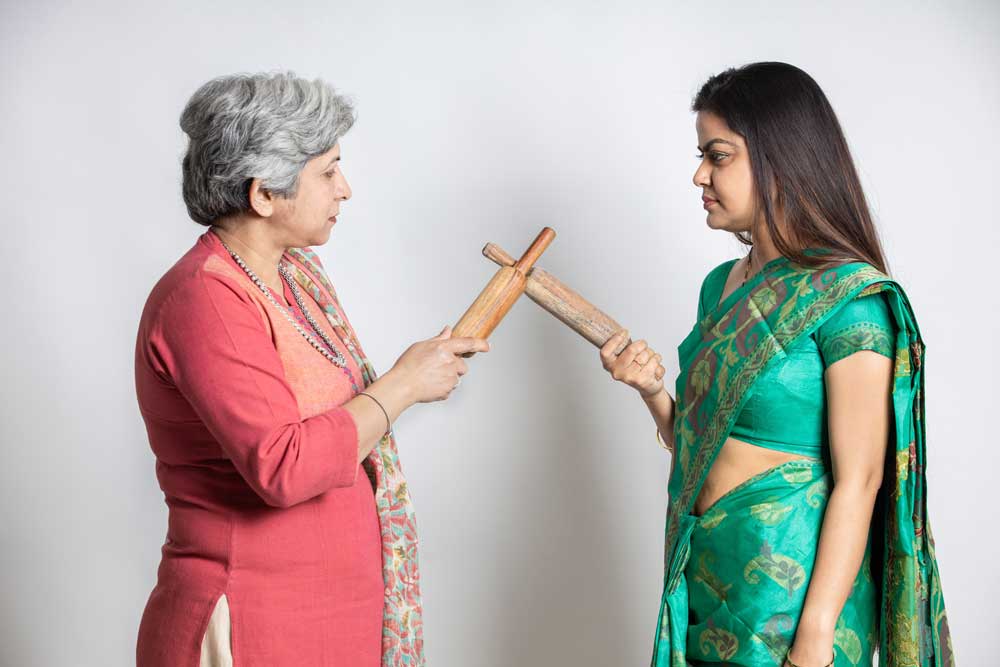In many societies, parents rely on extended family, mainly grandparents, to assist with childcare. They are part of the larger community or ‘village’ that assist with support, and act as social safety nets. This is a win-win situation for parents and children alike, so when does the conflict arise?
When the caregiving styles clash, it can have far-reaching consequences and affect the family dynamic. Parents may want to enforce certain behavioural standards, but grandparents tend to adopt a more permissive approach. By behavioural standards, we mean norms, rules, and expectations that parents have in terms of discipline, obedience, manners, safety, regularity in routines, and respect for elders. Permissiveness refers to lax limits, weak or inconsistent enforcement of rules, and reluctance to discipline or correct misbehaviour.
A survey in the US found that many parents report disagreements with grandparents about these parenting choices. About 37 per cent reported minor disagreements, while 15 per cent said their arguments were more serious. Major areas of conflict included discipline, meals, screen time, manners, and bedtime. Many parents felt grandparents were ‘too soft’. Among parents who tried to ask grandparents to change behaviour, responses varied. Some complied, some agreed but did not follow through, and some refused.
Cons Of Permissive Grandparenting
Says psychologist Dr Srinidhi Jambunathan, ‘Inconsistent discipline tends to lead to confusion, and more conduct problems. The child learns that rules are flexible depending on who is present, weakening the behavioural norms. When grandparents are permissive, parents may not be able to enforce rules. It may lead to ‘if grandpa says yes, I can bypass mom’s no’. Parents may feel anxious or frustrated when children don’t obey rules, and conflict may strain relationships. The parents' authority may also be undermined in front of the child, and they feel disrespected.’
Also, children’s performance improves drastically after interaction with parents as opposed to grandparents. This is partly because parents are more demanding and challenging cognitively. If grandparents are too relaxed, the child may lose opportunities for challenge.
Pros Of Permissive Grandparenting
There are some upsides to warmth from grandparents as well. It tends to promote children’s feelings of security, self-esteem, and belonging. Says Dr Srinidhi, ‘Permissive grandparenting can allow for transmission of traditional or cultural practices such as values, language, customs, storytelling, rituals or moral codes. These can contribute to identity. Grandparents might also provide an emotional buffer, forgiving mistakes, and being patient with temper tantrums, which can help children’s emotional regulation. Practical support includes childcare, supervision, logistics such as meals, especially when parents are busy with work or other duties. Children also learn adaptability and tolerance, with exposure to multiple adults.’
Factors That Influence The Parenting-Grandparenting Combination
In joint families, the norms are more tolerant of multiple styles. Behavioural expectations may be shared or more flexible. In contrast, in nuclear families, parents may expect more control and uniformity. Families with more resources might emphasise behavioural standards tied to school preparation, achievement, time management, and social manners. Grandparents may or may not share those norms. In lower socio-economic strata or rural settings, there are different priorities such as safety, respect, and survival, which may dominate.
‘Some children are more self-regulated and easygoing, while others are more impulsive,’ explains Dr Srinidhi. ‘A permissive environment with a highly reactive child may lead to more problems than with an easy child. The parenting philosophy also matters. Parents who practice authoritative approaches may find grandparent permissiveness more jarring than parents who themselves lean towards being more permissive.’
How much time grandparents spend, whether their role is full-time care-giving, or occasional babysitting, matters. More involvement means stronger influence. Younger children might be more adaptable to mixed messages, but as children grow, consistency becomes more important for self-control and peer interactions.

How To Balance The Two
Communication and clear expectations: Parents should communicate their behavioural standards clearly to grandparents, such as what rules matter most, what is non-negotiable, and where flexibility is acceptable. Ideally, have a calm conversation, not in the heat of conflict. Use specific examples rather than vague complaints.
Shared agreements: Form agreements about rules, especially bedtimes, screen time, acceptable discipline and eating sweets. Try to get grandparents involved in deciding some of these so they feel respected and understand the rationale.
Role differentiation: Recognise that grandparents and parents have different roles. Maybe grandparents can have more lenience on certain things, such as treats and play time, while strict rules on discipline, safety and health are upheld by parents. Identify the non-negotiables and ensure grandparents know and enforce these. Allow grandparents some latitude in less critical areas to preserve bonding.
Modelling behaviour: Grandparents who model consistent behaviour themselves help children internalise norms. Parents can invite grandparents to observe or attend parenting courses or workshops to align with their understanding of child development.
Flexibility: Behavioural standards may consistently evolve, and rules may therefore need adjusting from time to time. Allow for some flexibility, especially in grandparents’ households, to maintain relationships and emotional well‐being.
Feedback: Parents can monitor child behaviour across settings. Does the child misbehave more after being with grandparents? If so, what are the triggers? Speak to both the child and grandparents to understand what norms are being violated, and what is working. This feedback will help you chart your course forward. If permissiveness is causing problematic patterns, parents may have no choice but to limit grandparent involvement or change how the involvement works.
When parents and grandparents share similar child-rearing beliefs, outcomes tend to be better. Training through workshops or simply sharing recent child development research helps grandparents understand why certain behaviours matter. This way, even though grandparents are not parents, you can treat them as part of the caregiving team, seeking their input, respecting their role, while also asserting parental authority. An ideal scenario is strong parental warmth coupled with reasonable control. This is associated with the best psychosocial outcomes, such as self-esteem, emotional regulation, and better well-being.